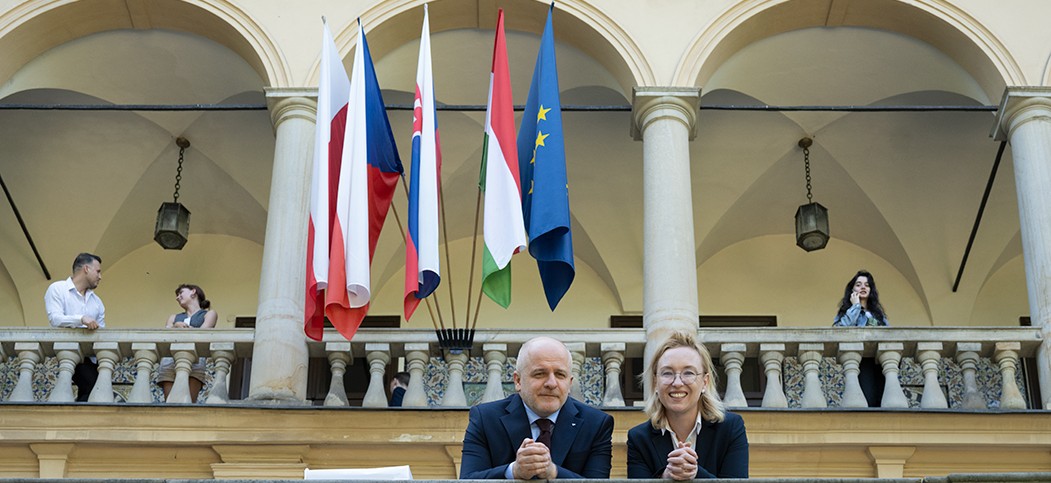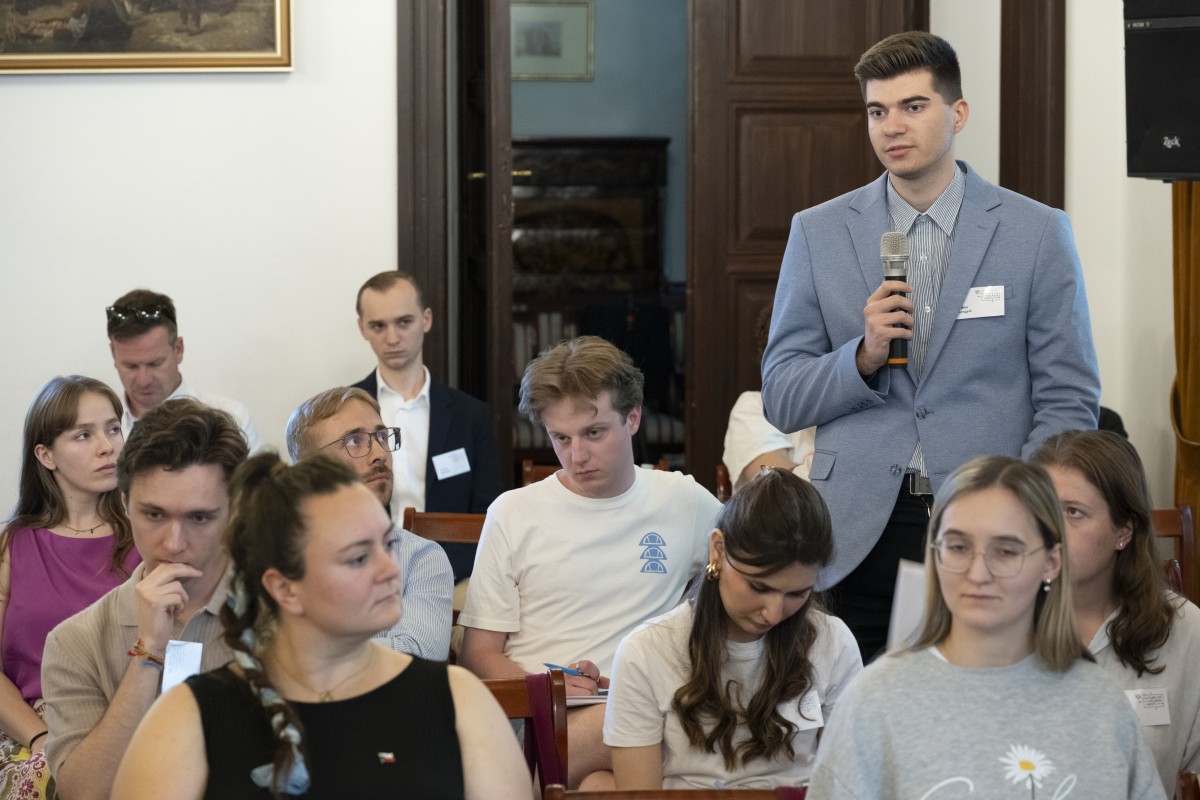
July 1st marked the start of the core academic program of the 23rd Visegrad Summer School.
With the official opening behind us, participants dove into the program's first full day of lectures, tackling some of the most pressing and complex issues shaping Europe’s future.
“Future Enlargement: Balancing Eastern and Southern Aspirations” - Spasimir Domaradzki (University of Warsaw)
This session provided a wide-angle view on the EU’s evolving enlargement strategy, highlighting shifting political priorities, candidate state frustration, and rising uncertainty. Spasimir Domaradzki encouraged participants to rethink the purpose of enlargement and to ask: what kind of Union should the EU become?
“Disinformation and (Dis)Integration – Visible Impacts on Democracies in Central Europe, the Polish Case” - Dominika Kasprowicz (Jagiellonian University, Stowarzyszenie Willa Decjusza)
Dominika Kasprowicz focused primarily on the Polish context, deepening how disinformation has impacted public discourse and democratic resilience in Poland. She explored the mechanisms of cognitive warfare, highlighting how hostile narratives shape public trust, emotions, and perceptions. The lecture also examined institutional and civic responses at the EU and national levels, with Poland as a central case study. Participants were invited to consider how democracies can confront long-term disinformation strategies in an age of information warfare.
“Polish–Ukrainian Cooperation: Challenges and Opportunities” - Paweł Kowal (Polish politician, former MEP and Deputy Head of the Ministry of Foreign Affairs)
In this forward-looking session, Paweł Kowal analyzed the future of Polish–Ukrainian relations against the backdrop of war and reconstruction. Emphasizing strategic solidarity and shared European responsibility, he underscored Ukraine’s path to recovery, which must include EU and NATO partnerships.
“Introduction to Futures Literacy and Foresight: Workshops” - Agata Bisping & Marcin Maciejewski
This interactive session introduced the concept of futures literacy - the ability to imagine multiple, alternative futures. Participants used the STEEP framework (social, technological, economic, environmental, political) to examine the forces shaping tomorrow’s Europe, particularly in the context of enlargement. A creative exercise helped reflect on hopes, fears, and uncertainties about the future, setting the tone for foresight-driven workshops ahead.
One day in, the road ahead already feels richer with questions, context, and momentum. Stay tuned - more voices, ideas, and conversations will come.















